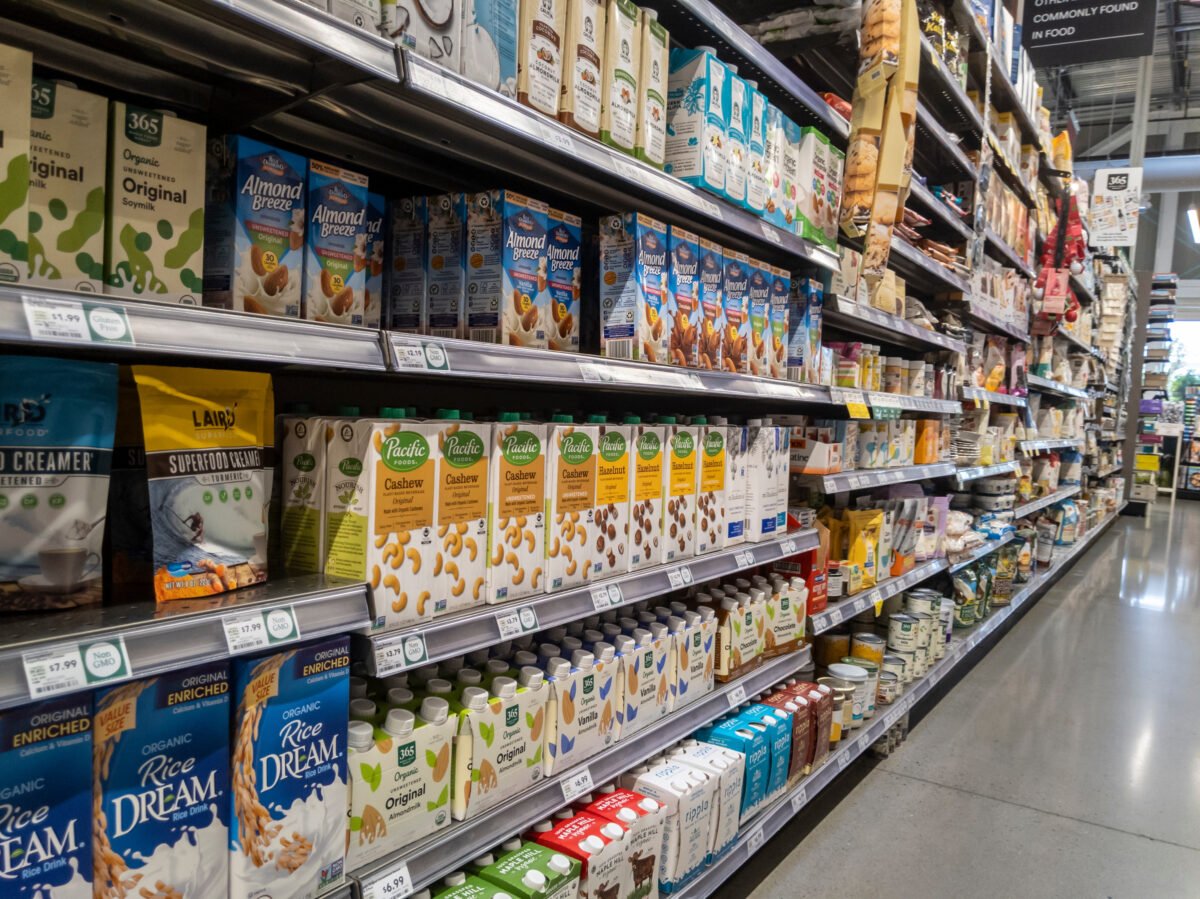A market research report has predicted that the global plant-based dairy market could reach USD $34 billion by 2030.
The market is currently worth around $20 billion, and the report anticipates a CAGR of nine percent over the next five years. It highlighted the Asia-Pacific region as a future market leader with a 35 percent share, driven primarily by increased awareness of lactose intolerance and rising disposable incomes.
Read more: Sproud’s New Matcha-Flavored Pea Milk Is Low In Sugar And High In Protein
The report, published by MarkNtel Advisors, also highlighted the increasing availability of plant-based options at mainstream chains and businesses, the widespread adoption of vegan diets, and growing environmental concerns.
“Environmentally, oat and soy require significantly less water compared to conventional dairy, aligning with climate-conscious consumer values,” wrote MarkNtel. “Plant-based dairy is increasingly perceived as healthier, with many products fortified with calcium, Vitamin B12, and proteins. Oat milk, for instance, is rich in beta-glucans, which help manage cholesterol.”
Along with sustainability, health remains a key driver of growth in the market. Furthermore, nearly 68 percent of the global population has difficulty processing lactose, making dairy-free alternatives a necessity rather than a lifestyle choice.
Milk dominates the dairy-free market with an approximately 50 percent share, having become a routine purchase for consumers of all kinds. Innovation will likely also play a key role in the growth of the plant-based dairy market between now and 2030.
Read more: Eclipse Foods Launches Plant-Based Whole Milk ‘Indistinguishable’ From Dairy
Legislation, subsidies, and the plant-based dairy market

In the report, MarkNtel highlighted the role of legislation and subsidies in supporting the dairy-free market. For example, it noted that the European Green Deal emphasizes innovation, clean technology, and green infrastructure, and that Canada’s Food Guide – along with several others – now encourages nutritious, sustainable, plant-based proteins alongside traditional animal products.
In September, a project was announced that will see Europe invest more than $2.5 million to promote plant-based foods. The project brings together partners from different EU member states to support farmers, expand plant-based catering, and provide policy recommendations. It will also equip health professionals to promote plant-based nutrition. Overall, the project aims for a more resilient food system.
Read more: Europe Is Investing More Than $2.5 Million To Promote Plant-Based Foods






